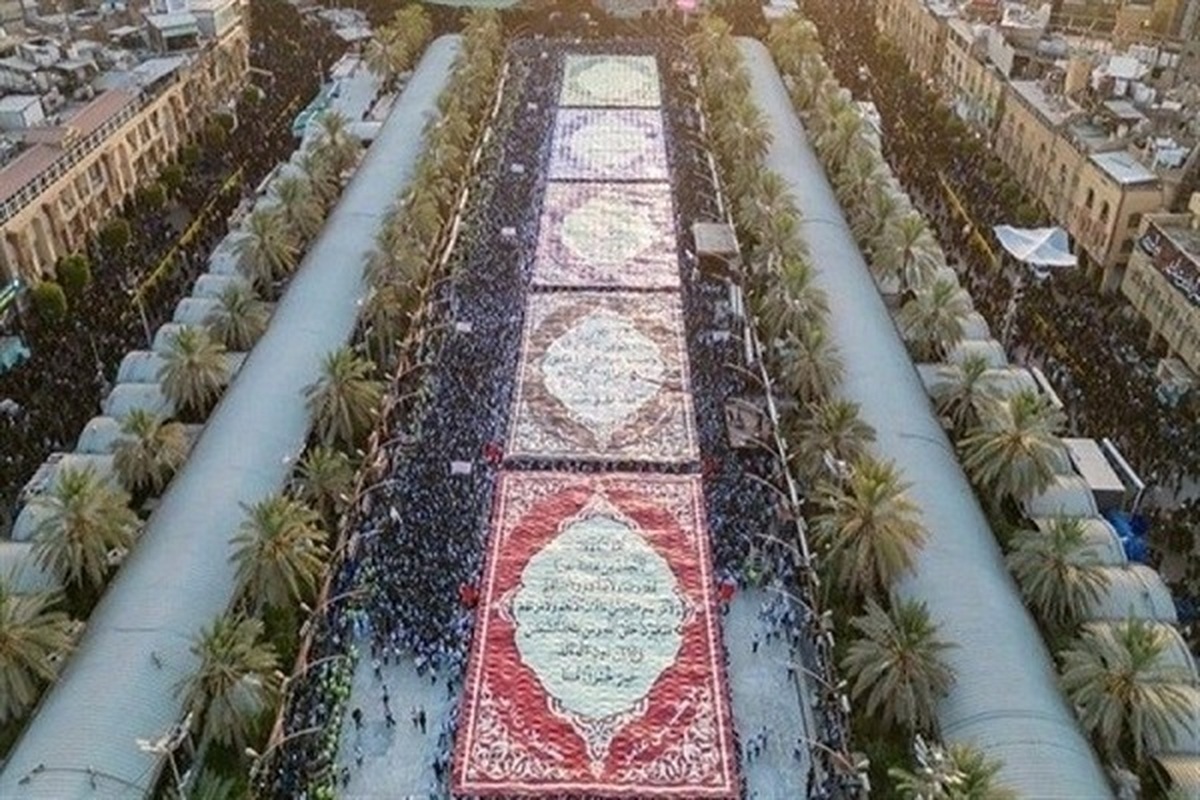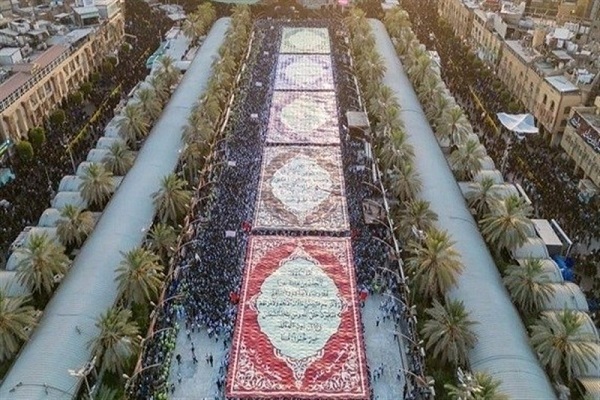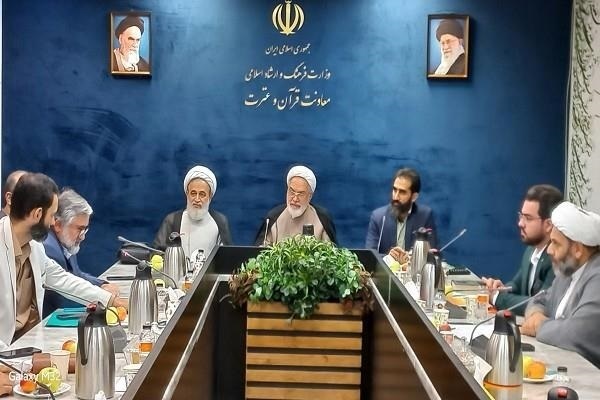Expanding Quranic Activities at Massive Arbaeen Pilgrimage Underlined


The Quran and the Family Higher Center of the Iranian Ministry of Culture and Islamic Guidance hosted the gathering, attended by representatives from various executive bodies related to the Arbaeen pilgrimage.
The participants stressed the need to significantly expand Quran-focused activities during the annual Arbaeen pilgrimage and outlined plans for this aim.
Hojat-ol-Islam Hamid Reza Arbab Soleimani, the culture ministry’s Quran and Etrat deputy, in his remarks referred to Verse 32 of Surah Hajj, “That is, and whoever magnifies the signs of Allah, then indeed, it is from the piety of hearts," and described the Arbaeen procession as one of the outstanding examples of divine signs and as a unique and unrivaled phenomenon in the contemporary world.
Stating that Arbaeen is akin to the Ashura uprising, he added that the difference between the two is in the type of jihad: “Ashura is a symbol of military jihad, and Arbaeen is a manifestation of cultural jihad. In both, concepts such as perseverance, resistance, seeking the right, enlightenment, seeking justice, and preserving ideals and remembering the martyrs are evident.”

The basis of the divine movement of Ashura and Arbaeen is built upon the teachings of the Quran and the Prophet’s (PBUH) household, he said.
He listed specific proposals for development of Quranic activities during the Arbaeen procession.
These included expanding Quranic centers and Moukibs. He also stressed the need for speakers and orators to focus on both recitation and contemplation of the Quran’s meaning.
Read More:
Other proposals involved producing Quranic media programs, expanding Quranic convoys with public participation, and memorization of specific Surahs of the Quran like Surahs Fajr and Fath.
He also called for the creation of a formal document outlining Quranic activities for Arbaeen.
Hojat-ol-Islam Alireza Panahian, a university professor and head of the International Arbaeen Foundation, also addressed the meeting. He highlighted the event’s unique potential and described the massive pilgrimage as a suitable ground for promoting Quranic culture.
Unless the Quran is mingled with the people’s hearts, its promotion will not be done properly, Panahian stated. “Arbaeen is the best opportunity for the spiritual connection of people’s hearts with the Quran and Ahl-ul-Bayt (AS).”
He offered a specific suggestion. It is proposed that during the Arbaeen march, sessions for Khatm Quran (reciting the entire Quran) be held, and the reward for its recitation be gifted to the deceased, especially the martyrs, Panahian said.
Panahian concluded by linking Quranic teachings with the Arbaeen procession’s core purpose. “Without attention to the teachings of the Ahl-ul-Bayt (AS), Quranic gatherings find no meaning.”
Read More:
Other attendees added their recommendations. Mahmoud Vaezi, a university professor, proposed hosting live programs with international reciters and Quranic competitions at Moukibs.
Representatives from other committees and the Quranic Headquarters stressed the importance of supporting grassroots groups and using the capacity of charities. They urged better coordination between Iran’s Quranic institutions and the organizers of the Moukibs that cater to pilgrims along the route.
The meeting concluded with a consensus on the need for greater synergy among cultural and Quranic institutions. The goal is to elevate the spiritual and intellectual level of the massive pilgrimage.
Arbaeen is a religious event observed by Shia Muslims on the fortieth day after the Day of Ashura, commemorating the martyrdom of Imam Hussein (AS), the grandson of Prophet Muhammad (PBUH) and the third Shia imam.
It is one of the largest annual pilgrimages in the world, with millions of Shia Muslims, as well as many Sunnis and followers of other religions, walking to Karbala from various cities in Iraq and neighboring countries. This year, the day of Arbaeen fellon August 14.
More than 4 million pilgrims from Iran took part in the 2025 Arbaeen procession.
4305890



